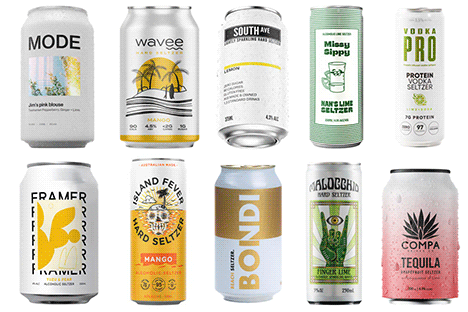Beer innovation at risk by ATO draft ruling

The Australian Tax Office (ATO) is currently grappling with the definition of "beer."
There is a fear in the industry that a shift in this definition could lead to higher prices for seltzers, ginger beers, and lagers, while stifling innovation among craft brewers in an industry largely dominated by two major players.
The issue arose when the ATO sought to differentiate seltzers—often likened to alcoholic flavoured mineral water—from traditional beers, despite their similar production processes.
A draft ruling from the ATO in September stated that for a beverage to qualify as beer, it must meet a "conventionally understood" definition: a bitter taste, mid-to-low alcohol content, and flavour, aroma, and appearance stemming from its grain-based fermentation, typically barley.
The proposed are expected to be implemented in February 2025.
The designation of a drink as beer is crucial for brewers due to the varying tax rates on alcoholic beverages. Beer is taxed at lower excise duty rates than "other excisable beverages," such as spirits and pre-mixed drinks. Currently, beer incurs an excise rate ranging from $2.22 to $36.98 per litre of alcohol, while other beverages face rates between $58.48 and $66.67 per litre.
In the 2019 financial year, excise taxes in Australia generated $6.9 billion, with beer excise contributing $2.6 billion. In a letter to the Tax Office, Independent Brewers Association CEO Kylie Lethbridge called the proposed definition an “insulting” simplification of the industry, emphasising that new beer styles are continually being developed.
“[The change means] on any given day, a tax officer would have the power to determine what product is beer – presumably absent any qualifications in brewing,” Lethbridge said.
According to the ruling, alcoholic seltzers and drinks that are initially brewed as beer but then modified would be classified as “other excisable beverages.” Lethbridge warned that this narrow definition could also unintentionally impact some of the country’s most popular lagers.
“Lagers are formulated with very low bitterness, very low flavour, and use production techniques to ‘strip them of their taste’ … to the point that they too could be understood to push the boundaries of what could conventionally be understood as beer,” she said.
According to industry sources XXXX and Great Northern are in this category.
Mike Clarke, founder and CEO of Sauce Brewing Co in inner west Sydney, created “brewed cocktails”— cocktails made through brewing instead of distillation — to diversify his business and adapt to shifting consumer preferences. However, Clarke expressed concern that the ATO’s draft ruling could undermine years of effort spent testing, trialling, and marketing these products.
“They’ll have to dump and start again,” he said. “They’ll have to relaunch their products and sell them at higher prices.”
Clarke said innovation would be crippled.
“How can any business have the confidence to build new products and invest in their business when the ATO changes the rules?” he asked.
Wayward Brewing Co founder Peter Philip believes the ruling would drive small breweries into the ground.
“The past three years have been a life-and-death battle to stay afloat, and it is not an exaggeration to say that this recent proposal from the ATO will push these businesses further towards the brink of permanent closure,” he said.
“The ATO wish to make themselves the arbiters of what is and isn’t beer,” he said. “All we’re asking for is genuine engagement from the ATO and the federal government to address these issues and the spiralling cost of excise taxes.”
According to an ATO spokesperson, “The draft determination was developed to help manufacturers of certain beer-based beverages, including beer-based seltzers, to correctly classify their beverages for excise taxation purposes. The ATO is currently considering all feedback.”
Jonathan Jackson, 10th October 2024







